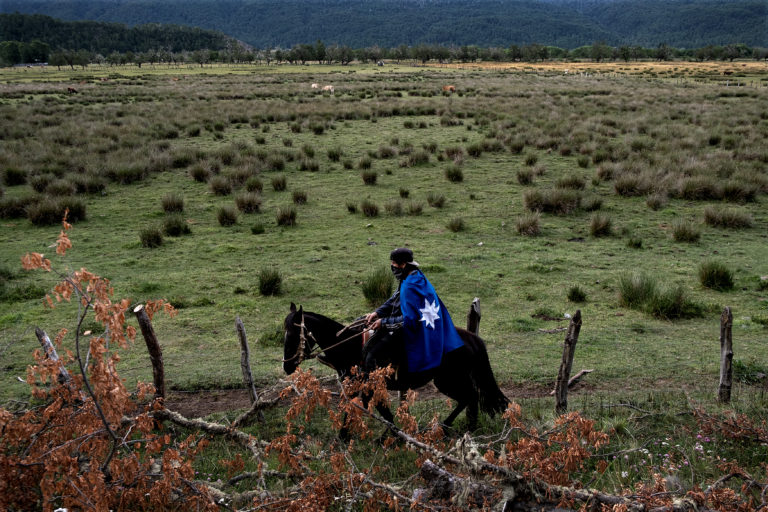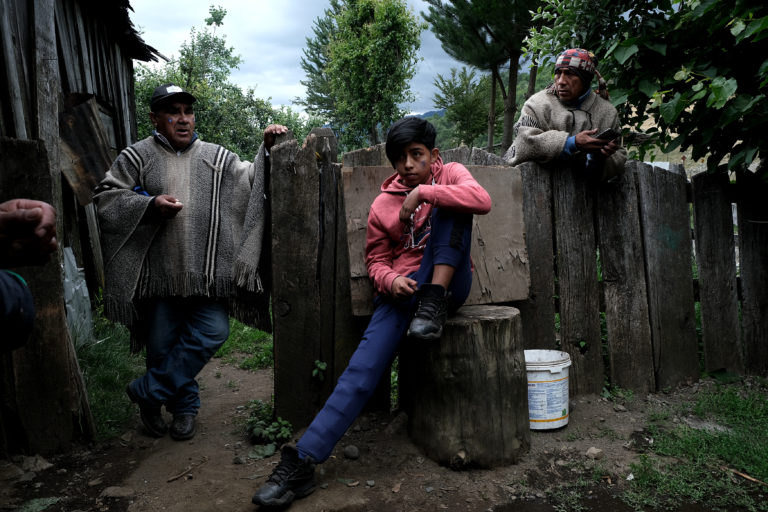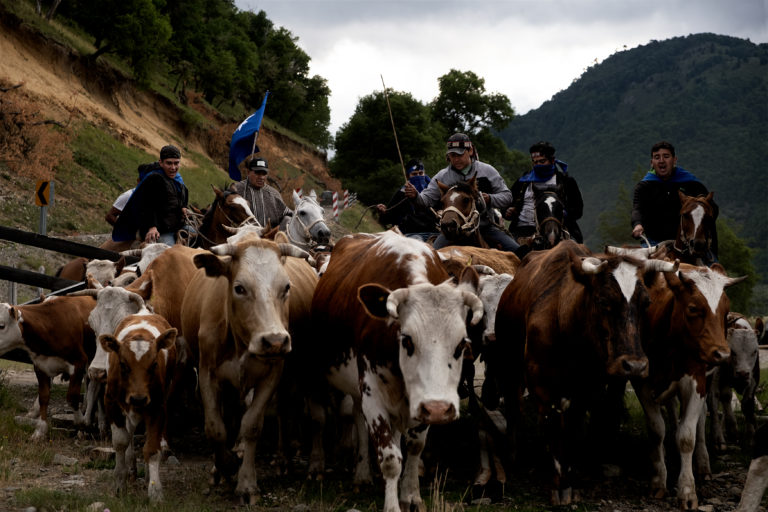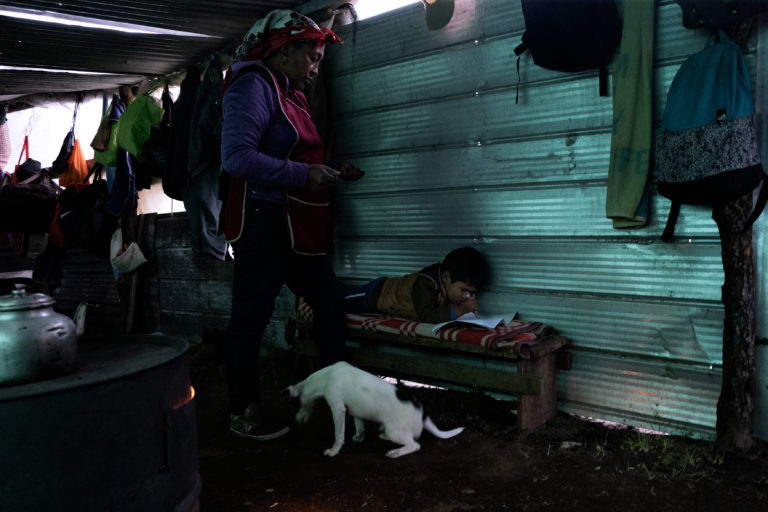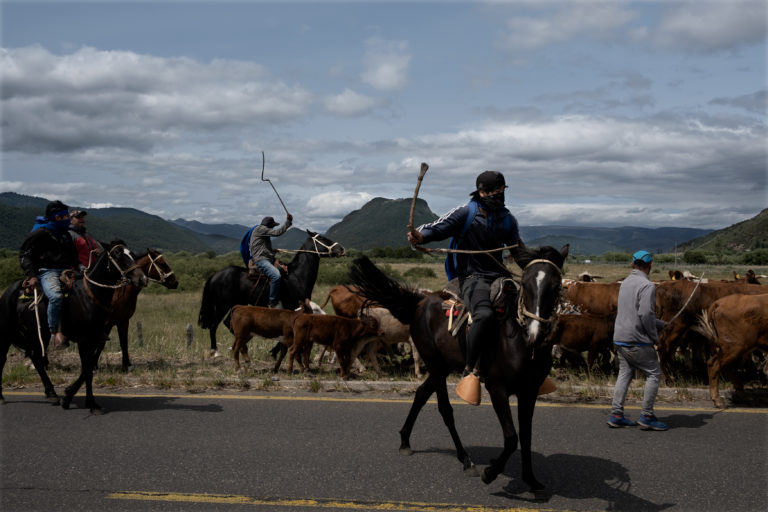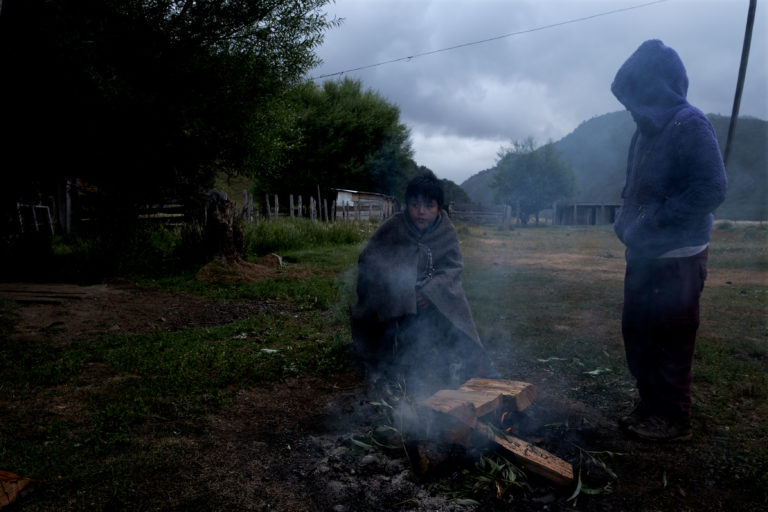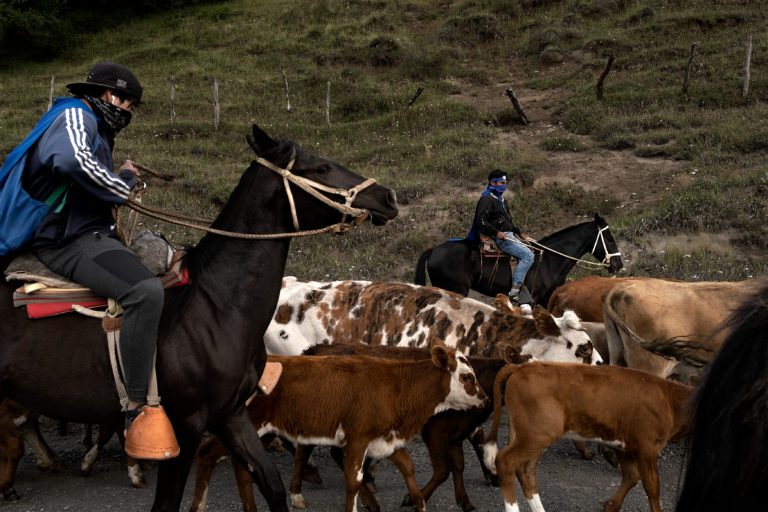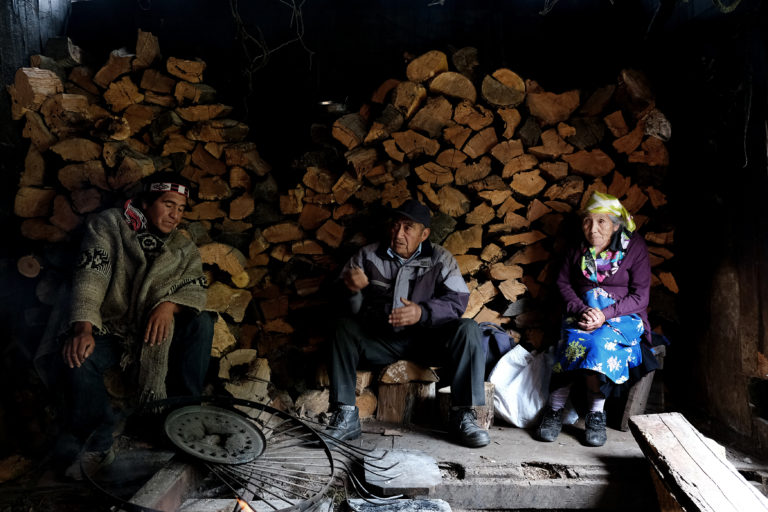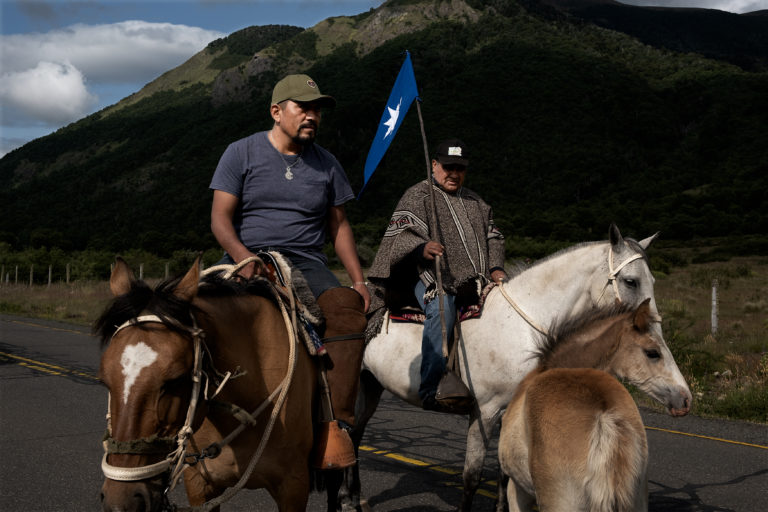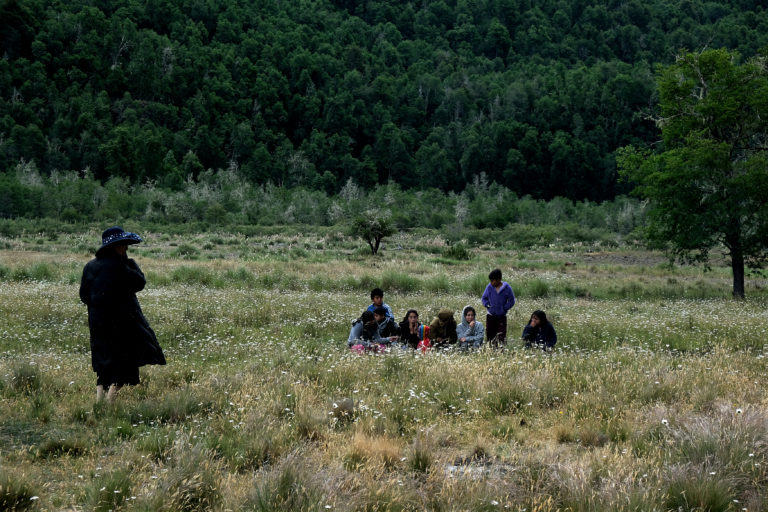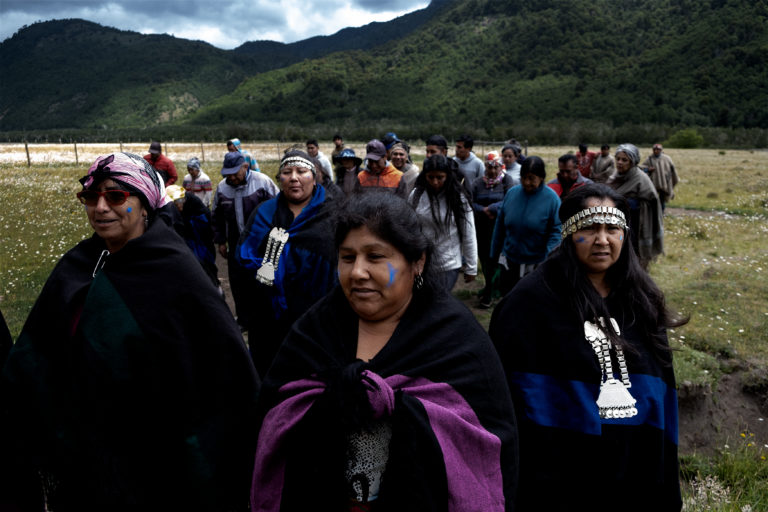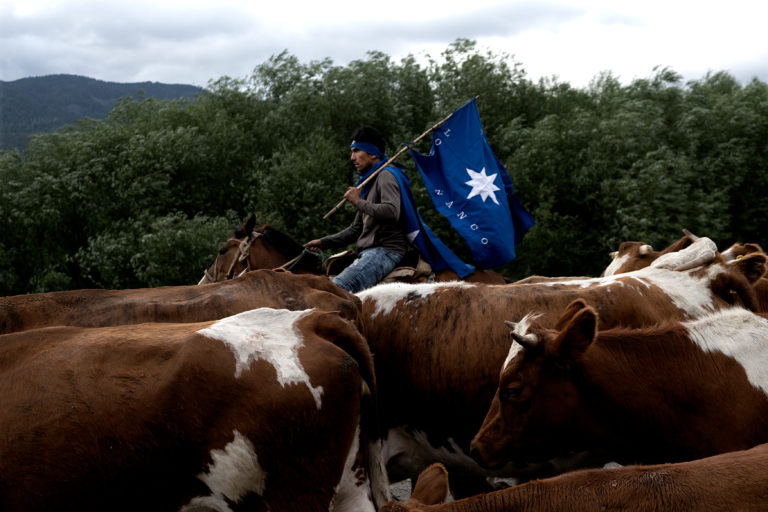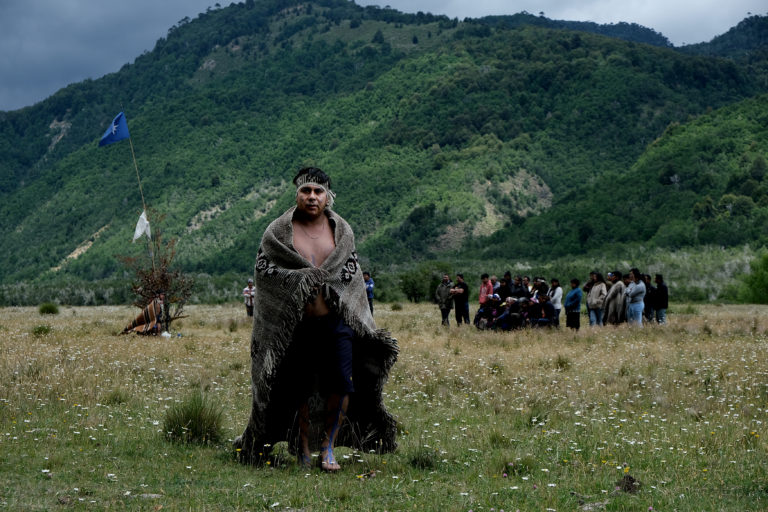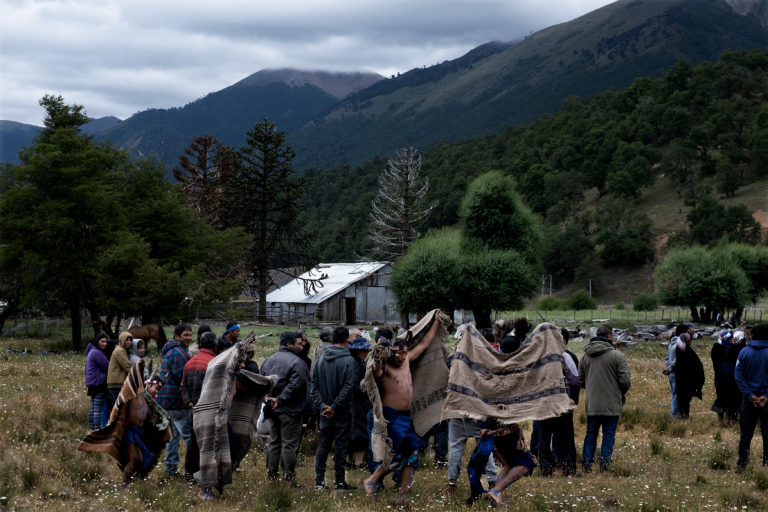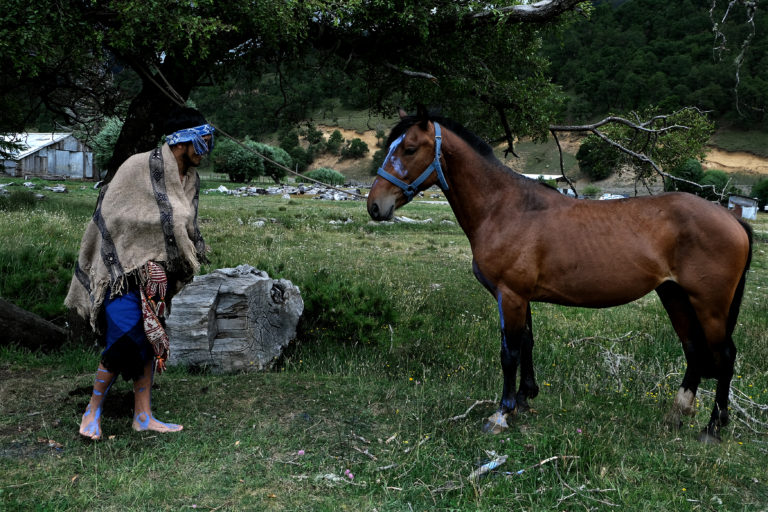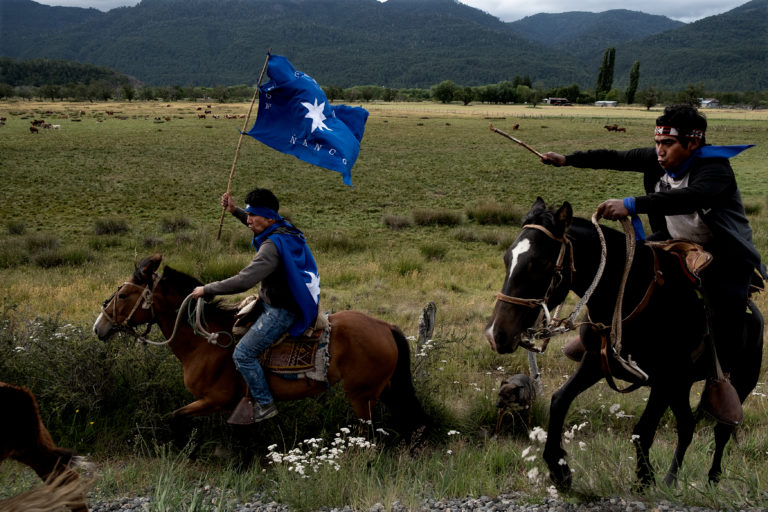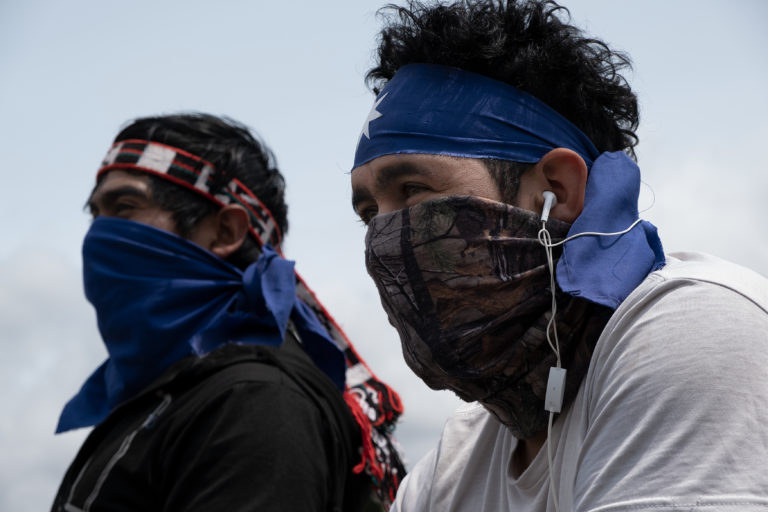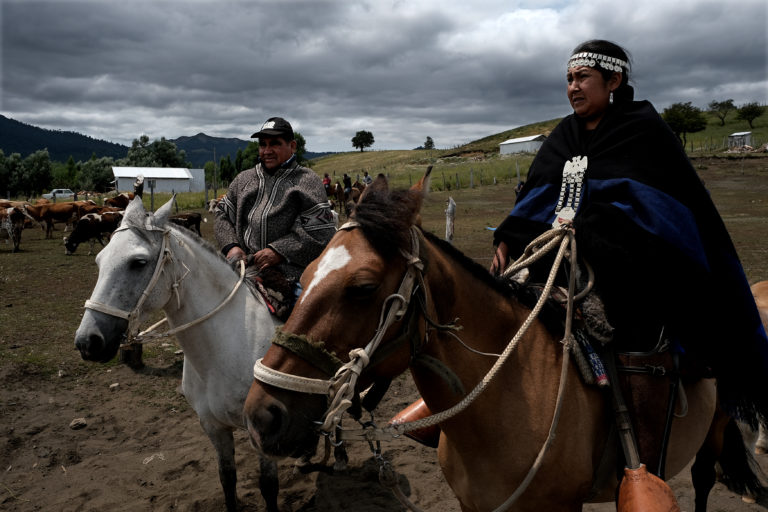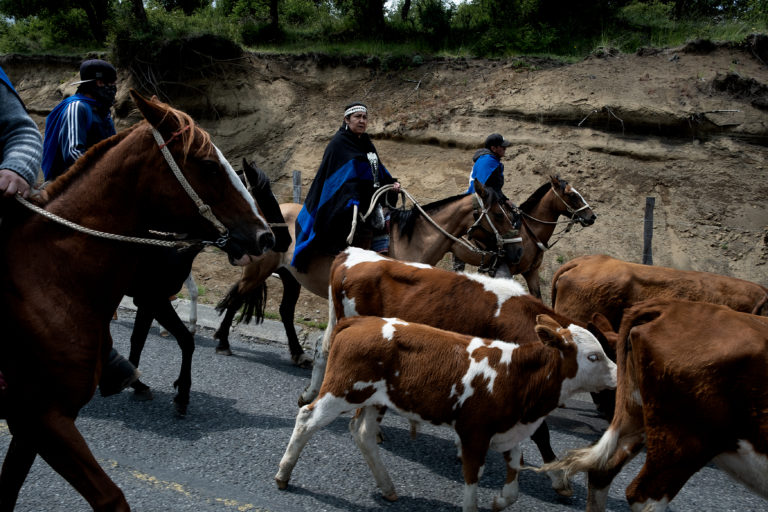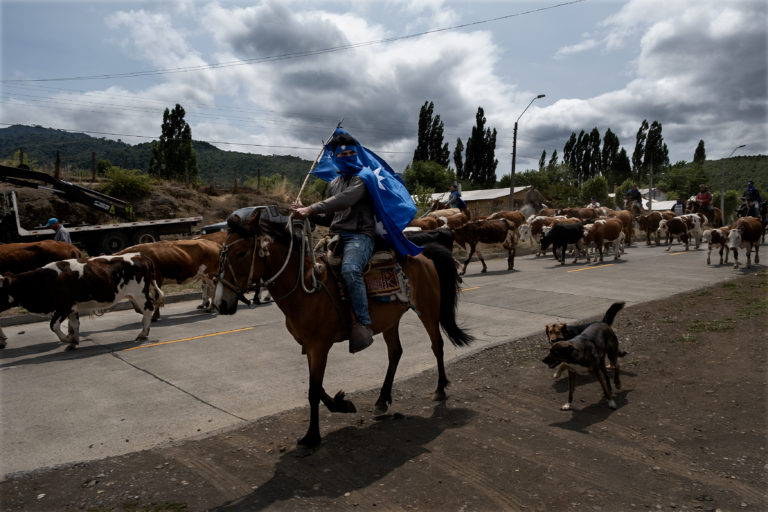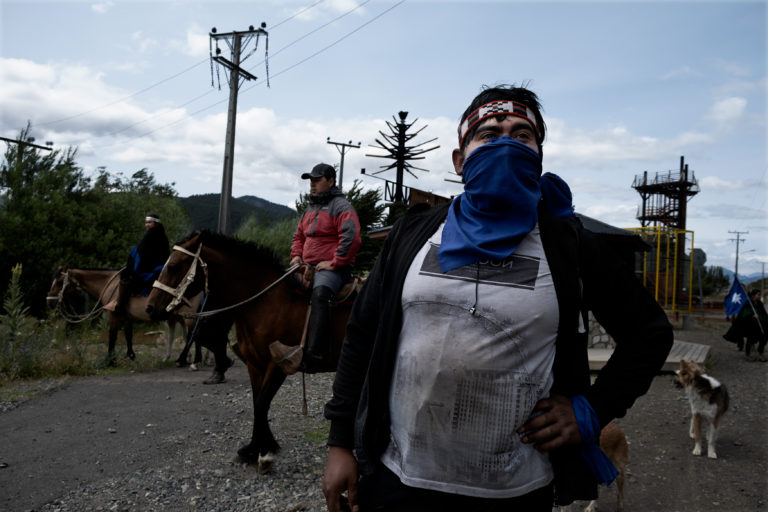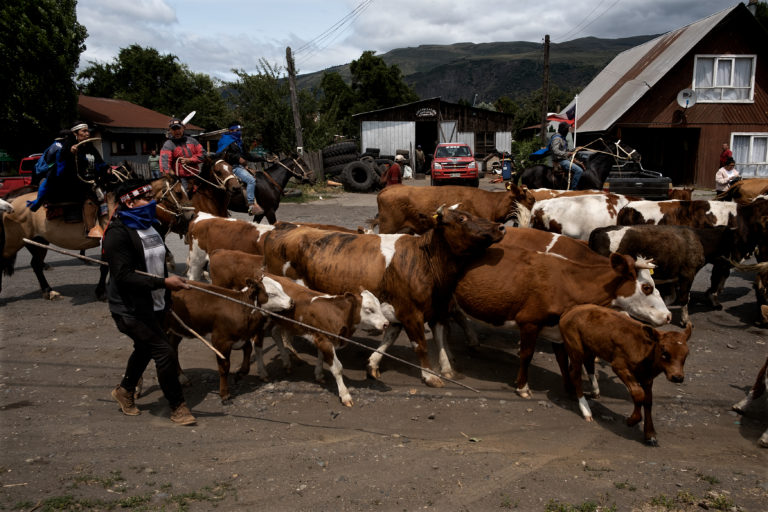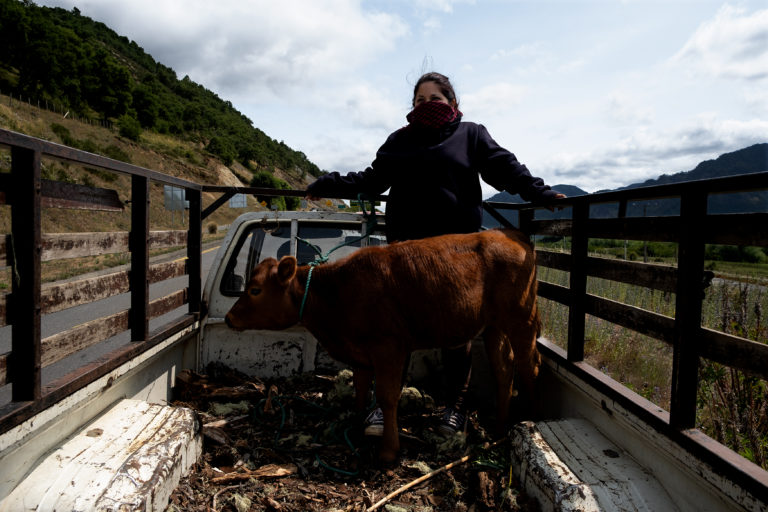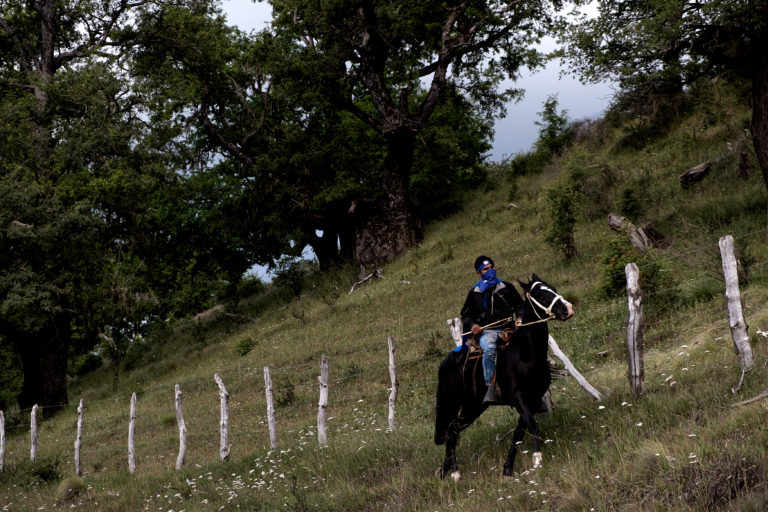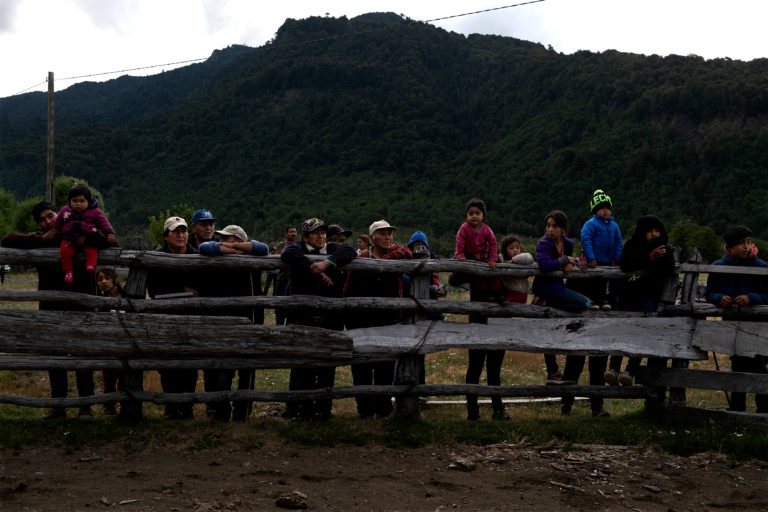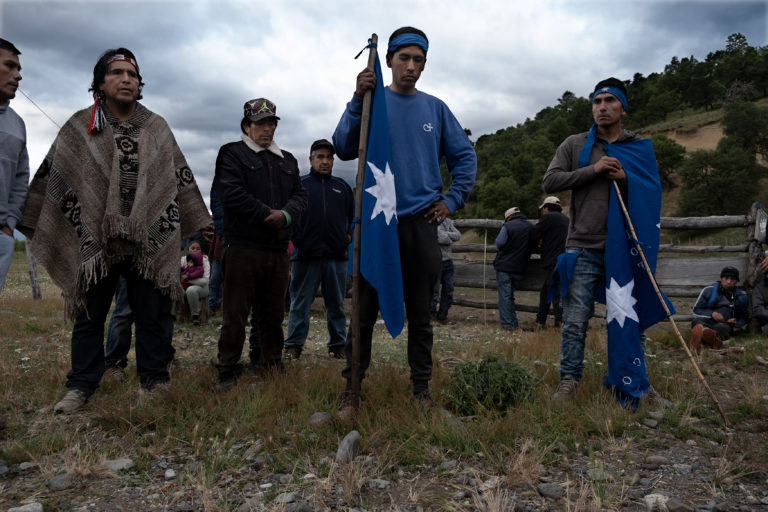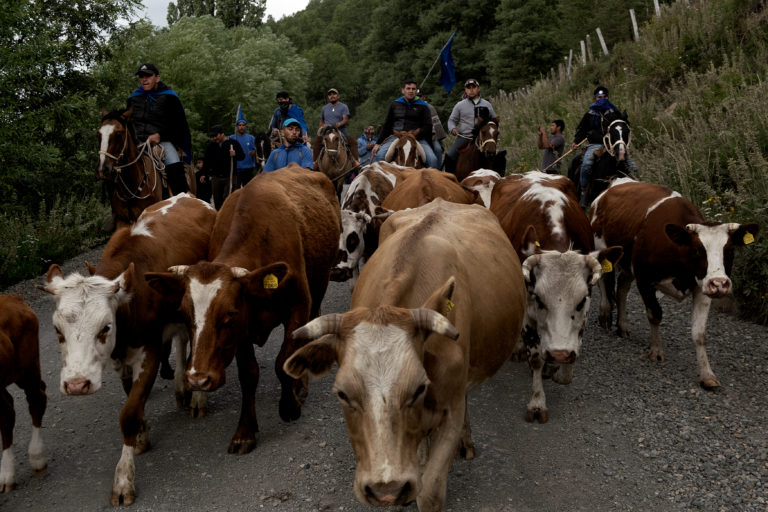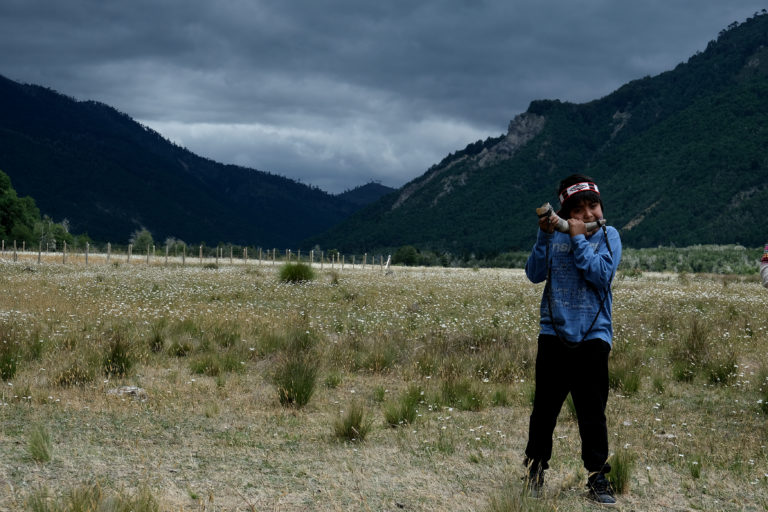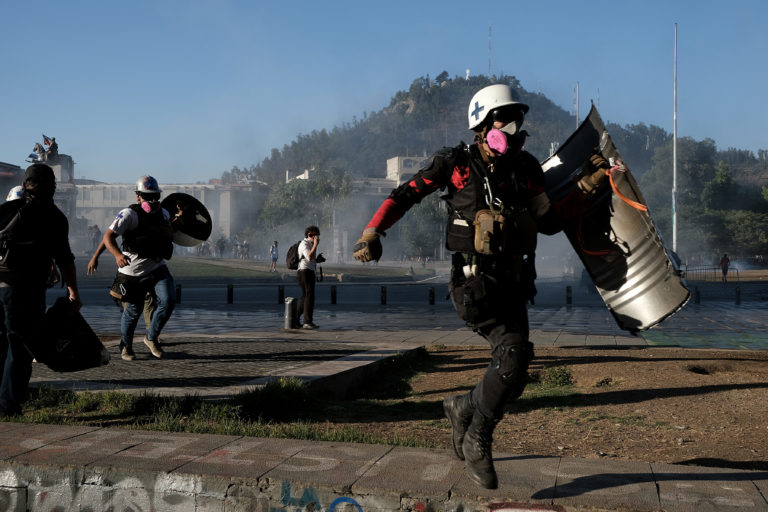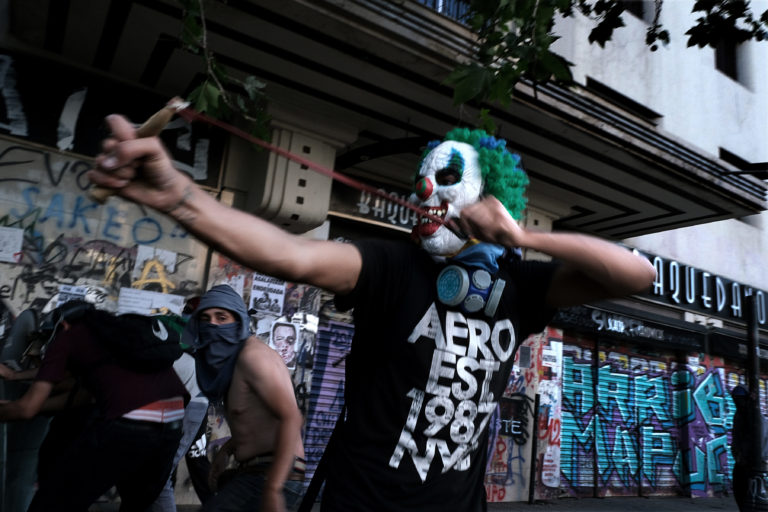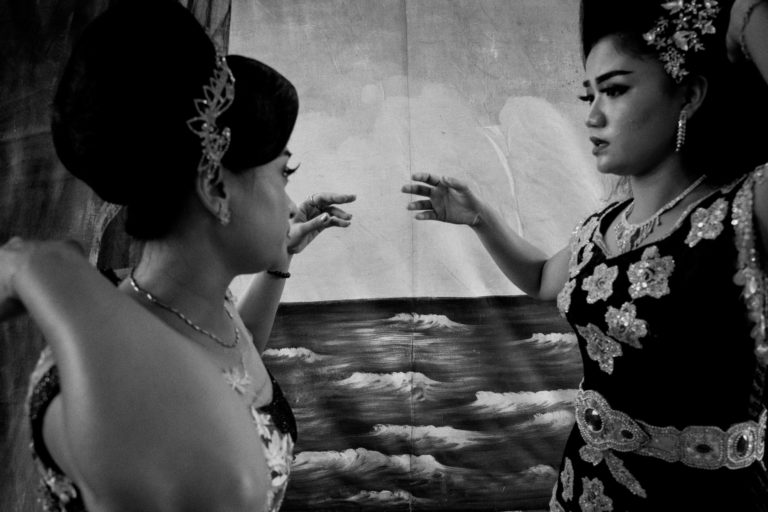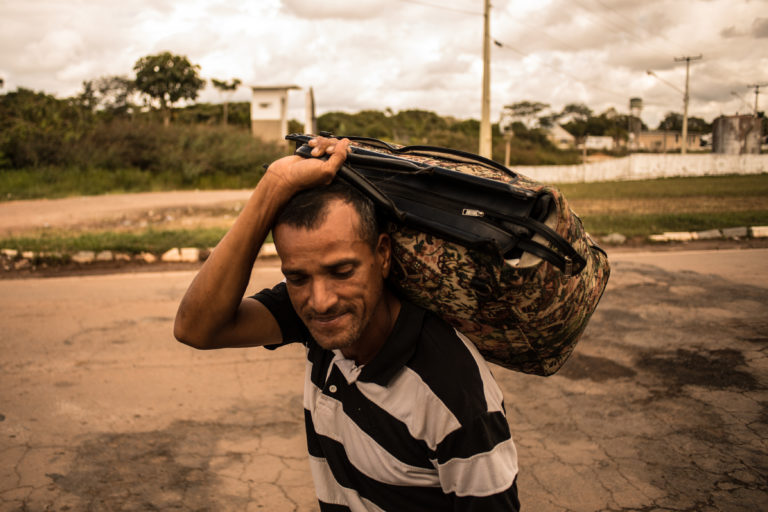MARICHIWEU! (THE LAND WAR)
Lonquimay (Chile) January 2020
Since the end of October 2019 thousands of chilean people are demonstrating non-stop in most of the cities in the country. What at the beginning appeared to be just a student protest against the rising of the price of the urban transport ticket (30 pesos, about 0,037 of a euro), became instead the switch of a massive people’s movement able to paralyze the country and showing all the rage of chilean people towards the government and its 30 years of neo-liberal policy, which produced a huge gap between classes and increased deep social inequalities. In these days of chaos and political instability, the Chilean government has particularly intensified the repression towards the Mapuche community. Known as “the people of the earth” the Mapuche population has passed through a long history of injustices and abuses since the middle of the XIX century. Ancestrally tied to their roots and proud warriors, they opposed resistance both to the Incas and the Spanish invasions. Still today, despite the pandemic emergency, they fight against the central government in order to protect not just their cultural identity, bust also their own lands from the loot of foreign multinational companies with huge interests in the area. Sponsored and legitimated through chilean laws, which allow the indiscriminate confiscation of Mapuche territories, these companies are actually depredating large amounts of the rich resources of this uncontaminated land. In the eastern part of Araucanía, Mapuche’s origin land, the fight between local communities and the carabineros special forces has reached dangerous levels. Since the year 2000 at least 13 young activists of the Mapuche Rights organizations were killed, while many others have been incarcerated with the accuse of terrorism. The Mapuche community of Pewenche live in Lonquimay, a small Andean village near the Argentinian border. Some of them are artisans and farmers, but the majority is obliged to move towards the north of the country in order to find a job, most of the times unfairly paid as seasoner in the agricultural sector, and spending large part of the year away from their native place. After many years of this hard life and several legal requests (always denied by the authorities) a group of local families decided to occupy a large portion of land, confiscated in the past by the central government and put on sale on the private market. Organized as a political and revolutionary act, covered by scarves with the white star flags logo, symbol of the Mapuche people, they carried on horses their grazing animals from a small and inappropriate plot of land to a new and larger pastures, covering more than 20 km. While carrying the animals trough the streets of the village under the eyes of unconscious residents, they challenged local authorities, publicly showing their intentions. “Marichiweu!” is their battle cry. After more than six hours of path they finally reached the new plot and lead the animals behind the corral. “Lof Adkintuwe” became officially a Mapuche occupied territory, while friends and relatives welcomed the riders with a sad smile.They knew the fight was not at the end, but just at the beginning.
Lonquimay (Chile) January 2020
Since the end of October 2019 thousands of chilean people are demonstrating non-stop in most of the cities in the country. What at the beginning appeared to be just a student protest against the rising of the price of the urban transport ticket (30 pesos, about 0,037 of a euro), became instead the switch of a massive people’s movement able to paralyze the country and showing all the rage of chilean people towards the government and its 30 years of neo-liberal policy, which produced a huge gap between classes and increased deep social inequalities. In these days of chaos and political instability, the Chilean government has particularly intensified the repression towards the Mapuche community. Known as “the people of the earth” the Mapuche population has passed through a long history of injustices and abuses since the middle of the XIX century. Ancestrally tied to their roots and proud warriors, they opposed resistance both to the Incas and the Spanish invasions. Still today, despite the pandemic emergency, they fight against the central government in order to protect not just their cultural identity, bust also their own lands from the loot of foreign multinational companies with huge interests in the area. Sponsored and legitimated through chilean laws, which allow the indiscriminate confiscation of Mapuche territories, these companies are actually depredating large amounts of the rich resources of this uncontaminated land. In the eastern part of Araucanía, Mapuche’s origin land, the fight between local communities and the carabineros special forces has reached dangerous levels. Since the year 2000 at least 13 young activists of the Mapuche Rights organizations were killed, while many others have been incarcerated with the accuse of terrorism. The Mapuche community of Pewenche live in Lonquimay, a small Andean village near the Argentinian border. Some of them are artisans and farmers, but the majority is obliged to move towards the north of the country in order to find a job, most of the times unfairly paid as seasoner in the agricultural sector, and spending large part of the year away from their native place. After many years of this hard life and several legal requests (always denied by the authorities) a group of local families decided to occupy a large portion of land, confiscated in the past by the central government and put on sale on the private market. Organized as a political and revolutionary act, covered by scarves with the white star flags logo, symbol of the Mapuche people, they carried on horses their grazing animals from a small and inappropriate plot of land to a new and larger pastures, covering more than 20 km. While carrying the animals trough the streets of the village under the eyes of unconscious residents, they challenged local authorities, publicly showing their intentions. “Marichiweu!” is their battle cry. After more than six hours of path they finally reached the new plot and lead the animals behind the corral. “Lof Adkintuwe” became officially a Mapuche occupied territory, while friends and relatives welcomed the riders with a sad smile.They knew the fight was not at the end, but just at the beginning.
